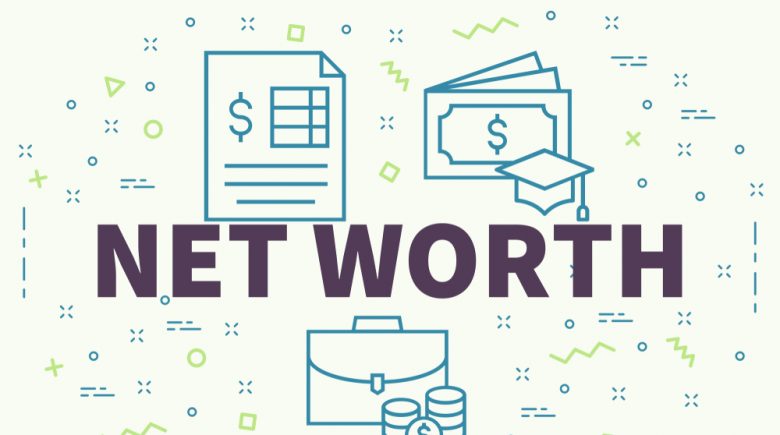What is Net Worth?
For the everyday workforce, it is sometimes difficult to decipher certain words about the financial world. Even everyday citizens working from paycheck to paycheck sometimes become confused about the simplest things like their paycheck statement that distinguishes such words as “net wages” and “gross wages.” These two words may cause you to pause a moment to sort out what you exactly made that week. “Was it the net amount or my gross amount?”
Gross Wages vs Gross Wages
Gross wages defines what you earned that pay period before all your deductions were taken out. What you have left after deductions is your net pay. Your net wages is the cash you put into your pocket.
What Does Net Worth Mean?
Everyone has assets and liabilities. Your net worth is all of your assets minus your liabilities. This determines how healthy your finances are.
Learn Basic Financial Language
An Asset
An asset pertains to everything you own that has a money value. You may own your home, but, it remains a liability until you completely pay off that home. However, if you decide to sell your home and have paid a substantial amount of money into your home and you get that money back when you sell it, your home is partly an asset because of the money you eventually receive when it sells.
A Liability
A liability is everything you owe. This can be your car, home, credit cards, charge accounts, medical bills, and more. Liabilities are the obligations that you are obligated to pay off. Liabilities decrease our assets when you subtract the values of each.
Liquid Cash
If you can take any one of your assets and turn them into cash they are known as liquid cash. Some examples of liquid cash is your checking account, Certificates of Deposits, Stock, or your 401K.
Non-Liquid Cash
If you want to turn some of your assets into cash, but it will take a while to do so this is known as non-liquid cash. For example, if you want to sell your home and you know that it could take a while to get the price you want, your home is non-liquid cash.
How Much is Your Net Worth?
Once you figure up all your assets and liabilities subtract what you owe from what you own and this is your net worth. Your net worth gives you an idea of how healthy your finances are. You must always weigh what you owe to what you own. If what you owe is more than what own your finances are cause for concern. If what you own is more than what you owe your finances could be in good shape.
Figure Net Worth
If you sold all of your possessions and got $1,000, then figured up all of what you owed at $900.00 and you paid off this $900.00 with the $1,000, your net worth would be $100.00. This example is pretty sad, however many people still owe liabilities after selling all they own.
For example, if you have a mortgage, consider what is left to pay the mortgage company, a liability, with what you have paid on the principle, an asset. If you have a car loan and want to resell your car, consider what is left on your loan with what you can sell your car for and deduct both. Is what you are going to get out of your car an asset?
Weighing your net worth as an individual, a small business, a large corporation, a township, a city, a state, or a country is necessary to find out how healthy finances are and if the entity needs to decrease some liabilities to help balance out net worth it needs to be done to balance finances.
If you, as an individual, have a high net worth, meaning more assets, and little to no liabilities you are known as a high net worth individual. This would be a perfect picture for everyone on earth. However, we do not live in a perfect world, thus many individuals let alone businesses may never reach this plateau of wealth.
If you are an individual who yearns to start a small business and your finances show a poor net worth, it is doubtful that any company you start will succeed. If you do not have healthy personal finances you will no doubt have little success in the business world.
Figuring the Net Worth of Your Company
Figuring out your company’s financial health becomes yet more complicated. In this scenario, your company’s net worth is known as shareholder’s equity or the book value of your company. Your net worth statement known as the balance sheet shows the value of your company’s equity. This equity is the difference between your total assets and liabilities. You never want your liabilities to exceed your assets. It is for this reason that a business is given no more the five years to show consistent profitability. If consistent profits of a company are not seen during the first five years of being in business it is doubtful that the company survives.
A company must consistently show a decent profit as this shows that the business has a rising net worth.
It makes no difference if you are a private citizen, a small company, a large company, or a country, your net worth must be more than what you owe. If your net worth is less, than your finances are not in good shape.
An individual with less assets and more liabilities are never going to realize a successful financial history. As this individual starts to decrease their liabilities and increase their assets they start on a healthy financial road.
A company must keep showing a sizeable profit every year, while decreasing liabilities such as business loans. This is the only way that a small or large corporation can continue to keep its doors open for business by showing more assets and less liabilities.
What is Net Worth?
For the everyday workforce, it is sometimes difficult to decipher certain words about the financial world. Even everyday citizens working from paycheck to paycheck sometimes become confused about the simplest things like their paycheck statement that distinguishes such words as “net wages” and “gross wages.” These two words may cause you to pause a moment to sort out what you exactly made that week. “Was it the net amount or my gross amount?”
Gross Wages vs Gross Wages
Gross wages defines what you earned that pay period before all your deductions were taken out. What you have left after deductions is your net pay. Your net wages is the cash you put into your pocket.
What Does Net Worth Mean?
Everyone has assets and liabilities. Your net worth is all of your assets minus your liabilities. This determines how healthy your finances are.
Learn Basic Financial Language
An Asset
An asset pertains to everything you own that has a money value. You may own your home, but, it remains a liability until you completely pay off that home. However, if you decide to sell your home and have paid a substantial amount of money into your home and you get that money back when you sell it, your home is partly an asset because of the money you eventually receive when it sells.
A Liability
A liability is everything you owe. This can be your car, home, credit cards, charge accounts, medical bills, and more. Liabilities are the obligations that you are obligated to pay off. Liabilities decrease our assets when you subtract the values of each.
Liquid Cash
If you can take any one of your assets and turn them into cash they are known as liquid cash. Some examples of liquid cash is your checking account, Certificates of Deposits, Stock, or your 401K.
Non-Liquid Cash
If you want to turn some of your assets into cash, but it will take a while to do so this is known as non-liquid cash. For example, if you want to sell your home and you know that it could take a while to get the price you want, your home is non-liquid cash.
How Much is Your Net Worth?
Once you figure up all your assets and liabilities subtract what you owe from what you own and this is your net worth. Your net worth gives you an idea of how healthy your finances are. You must always weigh what you owe to what you own. If what you owe is more than what own your finances are cause for concern. If what you own is more than what you owe your finances could be in good shape.
Figure Net Worth
If you sold all of your possessions and got $1,000, then figured up all of what you owed at $900.00 and you paid off this $900.00 with the $1,000, your net worth would be $100.00. This example is pretty sad, however many people still owe liabilities after selling all they own.
For example, if you have a mortgage, consider what is left to pay the mortgage company, a liability, with what you have paid on the principle, an asset. If you have a car loan and want to resell your car, consider what is left on your loan with what you can sell your car for and deduct both. Is what you are going to get out of your car an asset?
Weighing your net worth as an individual, a small business, a large corporation, a township, a city, a state, or a country is necessary to find out how healthy finances are and if the entity needs to decrease some liabilities to help balance out net worth it needs to be done to balance finances.
If you, as an individual, have a high net worth, meaning more assets, and little to no liabilities you are known as a high net worth individual. This would be a perfect picture for everyone on earth. However, we do not live in a perfect world, thus many individuals let alone businesses may never reach this plateau of wealth.
If you are an individual who yearns to start a small business and your finances show a poor net worth, it is doubtful that any company you start will succeed. If you do not have healthy personal finances you will no doubt have little success in the business world.
Figuring the Net Worth of Your Company
Figuring out your company’s financial health becomes yet more complicated. In this scenario, your company’s net worth is known as shareholder’s equity or the book value of your company. Your net worth statement known as the balance sheet shows the value of your company’s equity. This equity is the difference between your total assets and liabilities. You never want your liabilities to exceed your assets. It is for this reason that a business is given no more the five years to show consistent profitability. If consistent profits of a company are not seen during the first five years of being in business it is doubtful that the company survives.
A company must consistently show a decent profit as this shows that the business has a rising net worth.
It makes no difference if you are a private citizen, a small company, a large company, or a country, your net worth must be more than what you owe. If your net worth is less, than your finances are not in good shape.
An individual with less assets and more liabilities are never going to realize a successful financial history. As this individual starts to decrease their liabilities and increase their assets they start on a healthy financial road.
A company must keep showing a sizeable profit every year, while decreasing liabilities such as business loans. This is the only way that a small or large corporation can continue to keep its doors open for business by showing more assets and less liabilities.




